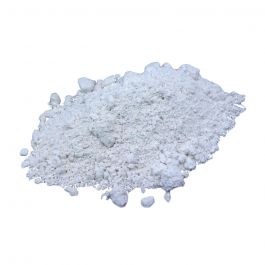- Language
- 🇺🇸
- Joined
- Mar 1, 2024
- Messages
- 339
- Reaction score
- 453
- Points
- 63
Vai alumīnijs nepadarītu to aizdomīgāku? tad ir skaidrs, ka jūs kaut ko slēpjat. bet es nezinu, es nekad iepriekš neesmu izsūtījusi narkotikas pa pastu.
- Language
- 🇬🇧
- Joined
- Jan 19, 2024
- Messages
- 45
- Reaction score
- 30
- Points
- 18
Daudzi cilvēki saka, ka alumīnijs palīdz bloķēt rentgena starus, bet es domāju, ka tas ir mīts.
Svins palīdz bloķēt rentgena starus, jo tā blīvums ir 11400 kg/m³, bet alumīnija blīvums ir tikai 2700 kg/m³, tāpēc es domāju, ka tas ir bezjēdzīgi.
tikai labi noderēs, lai ietītu narkotikas.
Svins palīdz bloķēt rentgena starus, jo tā blīvums ir 11400 kg/m³, bet alumīnija blīvums ir tikai 2700 kg/m³, tāpēc es domāju, ka tas ir bezjēdzīgi.
tikai labi noderēs, lai ietītu narkotikas.
↑View previous replies…
- Language
- 🇺🇸
- Joined
- Jan 23, 2024
- Messages
- 112
- Reaction score
- 39
- Points
- 28
- Deals
- 12
bullshit! alumīnija folija nebloķē rentgena starus.
jūsu dope ir organisko molekulu kaudze. organiskās izskatās citādi nekā metāla rentgena starojumā, un tās var atšķirt.
ja jūs vēlaties bloķēt rentgena starus, jums ir jāiegremdē jūsu dope līdzīgā organiskā enveronmentā, lai izskatītos kā kaut kas nekaitīgs. bet šajā brīdī es apstājos, jo es nevēlos atklāt savas slēpšanās metodes.
jūsu dope ir organisko molekulu kaudze. organiskās izskatās citādi nekā metāla rentgena starojumā, un tās var atšķirt.
ja jūs vēlaties bloķēt rentgena starus, jums ir jāiegremdē jūsu dope līdzīgā organiskā enveronmentā, lai izskatītos kā kaut kas nekaitīgs. bet šajā brīdī es apstājos, jo es nevēlos atklāt savas slēpšanās metodes.
- Language
- 🇺🇸
- Joined
- May 8, 2024
- Messages
- 43
- Reaction score
- 9
- Points
- 8
Theoretically aluminum can shield against electromagnetic waves, also x-ray.
But the thin layers used mostly are not enough.
There are different ways through which a material can block electromagnetic waves.
Scattering and absorption which often happens in high density, but it also works through the conductivity of a metal, and aluminum and copper for example have a good conductivity, and this allows them to absorb energy from the electromagnetic radiation pretty well, because of their free electrons.
But you would need a thick layer of aluminum, the normal foil is not going to do that well-
But the thin layers used mostly are not enough.
There are different ways through which a material can block electromagnetic waves.
Scattering and absorption which often happens in high density, but it also works through the conductivity of a metal, and aluminum and copper for example have a good conductivity, and this allows them to absorb energy from the electromagnetic radiation pretty well, because of their free electrons.
But you would need a thick layer of aluminum, the normal foil is not going to do that well-
- Language
- 🇺🇸
- Joined
- May 8, 2024
- Messages
- 43
- Reaction score
- 9
- Points
- 8
Also the shielding ability of aluminum is better (lot better) at lower frequencies, and thickness would need to be increased a lot to shield effectively against x-rays. Also at such high frequencies like x-ray denser materials with high Z are normally required because they have a higher probability of interacting with high energy electromagnetic waves, but theoretically every conductor can block them t some point, also aluminum, but you need a very thick layer which is not practical.

